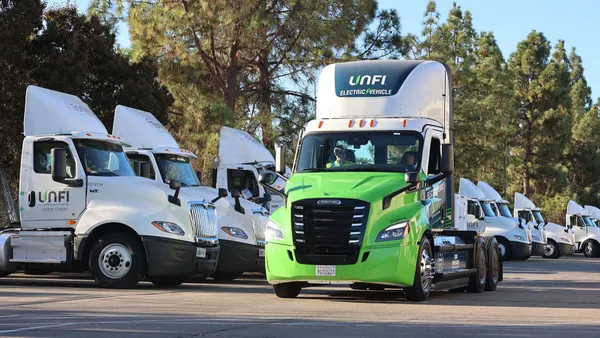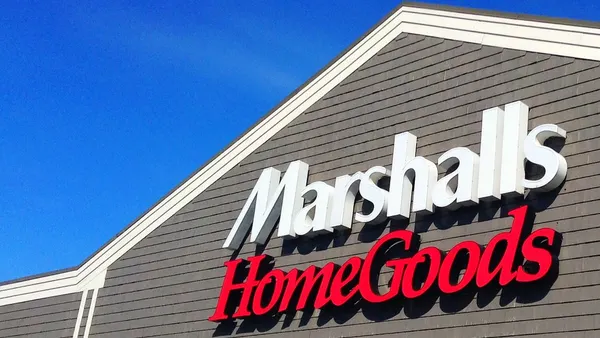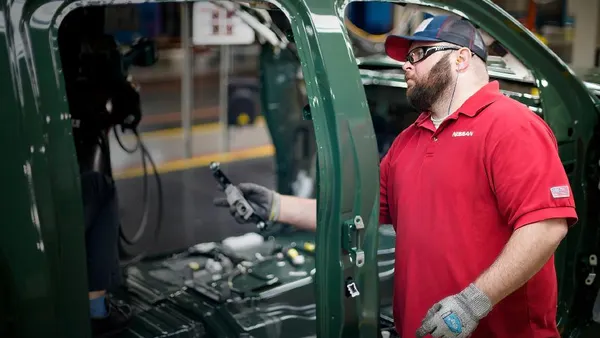Dive Brief:
- With online shopping affecting even car purchases, dealerships are finding it prudent to sell valuable tracts of land previously used to store and display massive inventory, the Wall Street Journal reported.
- Many dealers are choosing to reallocate their inventory across their real estate, storing vehicles in nearby warehouses located on smaller, less valuable plots, then transporting them to the dealership when and if needed.
- At present, dealers own some $130 billion dollars worth of real estate; paring those holdings to create smaller, data-directed stores that carry the vehicles most popular in the area can create significant savings for the industry.
Dive Insight:
Traditional car buying has changed in many ways, eliminating the need for expansive lots. Companies such as vroom.com not only allow you to choose a car and negotiate financing, but also deliver it, eliminating any need at all to visit a car showroom.
Because of the shift in buying power skewing toward consumers, auto dealers are in the process of rethinking how they deliver the final product. Real estate dotted with new vehicles, once a sign of a bucolic nation gone by, is being rethought by dealership owners who must more carefully value the cost of the real estate that houses their assets while still provide an efficient avenue for product delivery.
In general, progressive dealers are finding ways to adapt to changing demands. For example, a Chrysler dealer in the Northeast recently instituted a program guaranteeing a test drive from a customer’s house within 45 minutes depending on the distance from the dealership.













